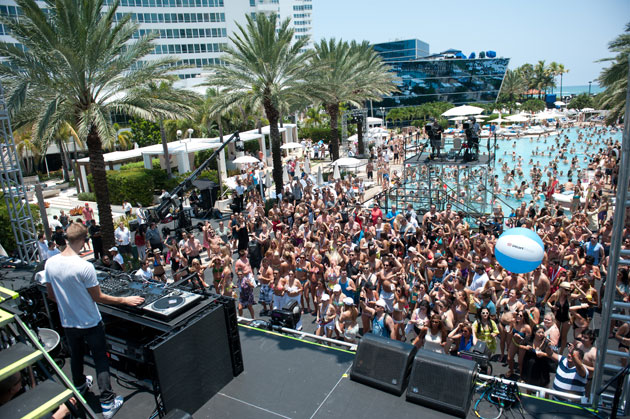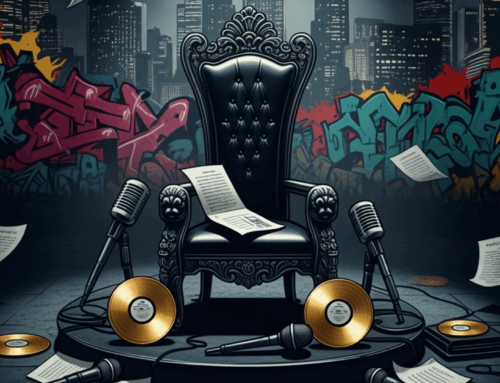These days, a week doesn’t go by without some news about EDM in Las Vegas: a DJ scores a new residency, a new club gets built, or more funds get put toward improving one of the Strip’s several venues.
Recently, what caught attention about Las Vegas’ nearly-overnight shift wasn’t some financial trend piece in Forbes or an interview in Billboard but a blog post from Kaskade. The DJ known for hits like “I Remember” compared the city to Detroit and Chicago, spoke about its “fertile” and “nurturing” environment for DJs, and proclaimed it has potential to go above and beyond Ibiza.
In one sense, Kaskade’s post highlights a facet of electronic music that quickly built momentum over the past two years; in another, Spin deconstructed his statements, comparing the city’s EDM culture to Caligula in the process.
While comparing Las Vegas to Chicago or Detroit is apples to oranges, with time, place, and popularity all variables, Kaskade shed light on the burgeoning or mid-level performer. So, for the DJ who’s not Afrojack, Avicii, or Tiesto, has Las Vegas’ quick rise in the EDM sphere proved to be an asset – or has it left others out in the cold?
First, though, the key to understanding success in Las Vegas is observing its quick history as the “next” Ibiza. Although media attention began roughly two years ago, Blog.Vegas.com points to Paul Oakenfold’s still-going Planet Perfecto night as the first instance a mainstream, globally-known DJ wanted to settle in Sin City.
Oakenfold’s endeavor, however, has been overshadowed by the “battle” between the top Strip hotel clubs for the stars that essentially top the DJ Mag 100 list each year.
A Forbes profile spells out the financial equation. For clubs like Hakkasan, XS, and Marquee, DJs pulling six figures a night draws crowd that put their dollars toward alcohol. While the clubs themselves barely break even after millions of dollars worth of improvements, EDM helped pull Vegas from the slump experienced during the Great Recession: Specifically, an 18-percent decrease for gambling and a five-percent drop overall. The top 10 largest clubs, according to Spin’s Andrea Dominick, grossed $700 million in 2012 alone.
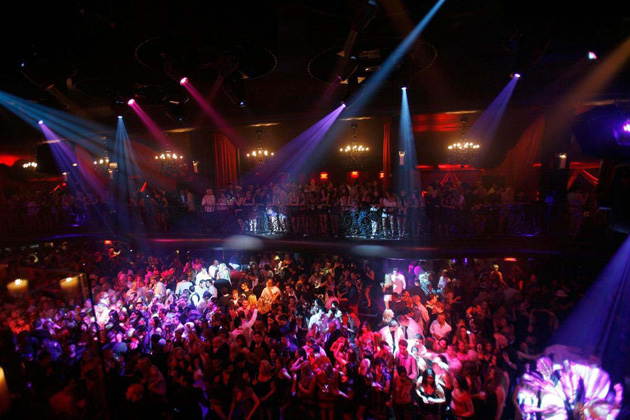 With Electric Daisy Carnival factored into the picture, the city’s predicted to draw 40 million visitors for 2013 – a record that could continue the trend of hotels earning more from their nightclubs than casinos.
With Electric Daisy Carnival factored into the picture, the city’s predicted to draw 40 million visitors for 2013 – a record that could continue the trend of hotels earning more from their nightclubs than casinos.
Beyond the dollar signs, the emphasis on bringing the most famous DJs to the city’s top clubs appears to be one facet that could continue to grow – and take mid-level DJs with it in the process – or be just another boom-and-bust fad for the Strip. As the New York Times notes, hip-hop dominated the area’s clubs until EDM began gaining ground.
While prices climb higher, from the cost of admission to the amount put into building or revitalizing a nightclub, and the spectacle becomes brighter (Light even has Cirque Du Soleil performing along with the DJ), where does this leave the DJs who performed in the city before Skrillex had his name in lights? We spoke with a couple of Vegas-based DJs – Ikon and Keith Evan – about their observations.
In terms of the actual club experience, Ikon talked about a new dimension for electronic music. If you think about the genre’s history, the DJ’s role has evolved from being in a corner or behind the scene to front and center to, within Vegas’ top venues, part of a large, dazzling performance. “Before you’d see clubs, and you go in, and the DJ booth would be the focus,” he says.
Then, he went onto explain, “Now, there’s a whole production that goes into DJing in Vegas now, especially at the mega clubs. From the professional point of view, it has skyrocketed over the last five years now. It went from being very little to now, you go to a club like Light, and they have Cirque du Soleil. A lot of times, it’s like going to a concert.”
Ikon, who has DJed in Las Vegas since 2004 and now performs at 1Oak, Rehab, Body English, and Chateau, among other clubs, observes that smaller venues have had to adapt. Although the crowds are there, the focus has changed: “From a production standpoint, you can’t complete with the clubs that have a $500,000 entertainment budget, and your club has a $5,000 entertainment budget. So, they reach out by doing a lot more local events.”
Keith Evan, who started DJing as a hobby and later went onto found the city’s definitive deep house night Soundbar, saw potential in Las Vegas after moving back from Venezuela. “It didn’t take me long to say, ‘Wow, Vegas was a place that needed our music,’” he said about his initial experiences.
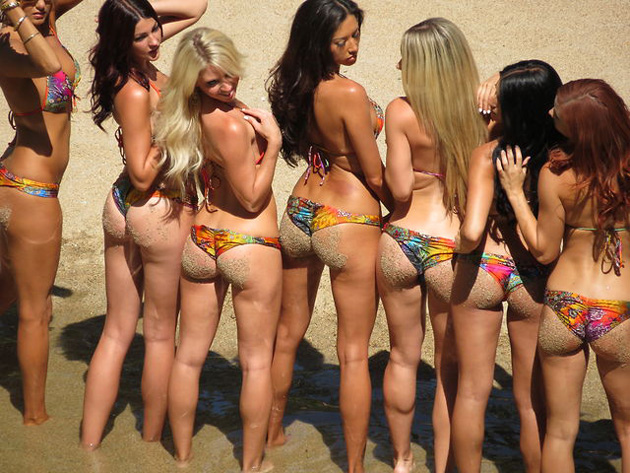 What Keith Evan, who has seen Soundbar move between multiple venues over the years, observed is, the club scene didn’t skew so much toward the hotels and the music community felt smaller. “There wasn’t a lot of hotel clubs, so now, there’s a major nightclub in every single hotel,” he explained. “Back then, there wasn’t. There was Utopia. Eventually, Ice opened up, which was a freestanding club that used to be the Joint. The Joint was a freestanding club that used to be there before I got there, but it was really more, it was just a tighter group. You didn’t have all the TV attention. Back then, it wasn’t respected as a night place, especially in the deep house community. It took years – and it’s still not really a go-to place for deep house at all. What happened from then ‘til now that it has become a worldwide destination. I mean, it is the destination. I would probably have to agree.”
What Keith Evan, who has seen Soundbar move between multiple venues over the years, observed is, the club scene didn’t skew so much toward the hotels and the music community felt smaller. “There wasn’t a lot of hotel clubs, so now, there’s a major nightclub in every single hotel,” he explained. “Back then, there wasn’t. There was Utopia. Eventually, Ice opened up, which was a freestanding club that used to be the Joint. The Joint was a freestanding club that used to be there before I got there, but it was really more, it was just a tighter group. You didn’t have all the TV attention. Back then, it wasn’t respected as a night place, especially in the deep house community. It took years – and it’s still not really a go-to place for deep house at all. What happened from then ‘til now that it has become a worldwide destination. I mean, it is the destination. I would probably have to agree.”
The Strip indirectly influences Downtown Las Vegas, Keith Evan observed, but the musical offerings extend past the top clubs’ progressive house standards. “I think the biggest result of the hotels blowing up with all these clubs is that the Downtown area has really embraced the arts, food, and indie style types of music, including house, like deeper house, because all the other house music you’re talking about in the nightclubs are like commercial, big sound types of DJs and music. It’s EDM types of sounds, where if you go Downtown, you’re not going to hear that,” he explained. “That’s where you’ll find some of the deep house parties, some of the funk and soul parties, the rock n roll – the stuff that you’re not going to generally get in casinos now is really driving the Downtown.”
While Keith Evan notices boutique DJs turning toward Downtown, Jesse Saunders, considered one of house music’s founders, held his Pure House Music Festival there, rather than on the Strip, nearly a year ago.
With dance music, however, the power of getting a track out there can’t be understated, and emphasized heavily at the 2013 Winter Music Conference, being a DJ and producer tend to go hand-in-hand, particularly for younger performers. After all, Avicii and Skrillex wouldn’t be headlining Strip venues without putting out their own tracks first.
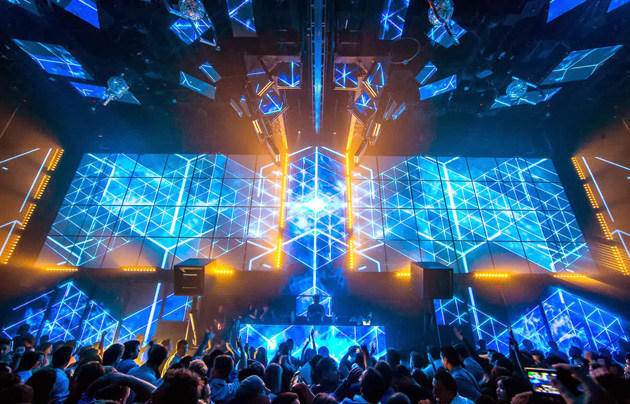 In this regards, Ikon found making connections with other DJs and labels easier and is currently putting together remixes for Katy Perry, Britney Spears, Wyclef Jean, and the New Boys. “There’s definitely opportunities to expand out of Vegas right now,” he says about the connections that ultimately lead to getting a track out there and heard.
In this regards, Ikon found making connections with other DJs and labels easier and is currently putting together remixes for Katy Perry, Britney Spears, Wyclef Jean, and the New Boys. “There’s definitely opportunities to expand out of Vegas right now,” he says about the connections that ultimately lead to getting a track out there and heard.
Even with the Strip’s indirect and positive influence, not everyone thinks the demand will last; part of this has to do with Las Vegas’ quick adaptation to trends. Club owners acknowledge this. As Sean Christie, the managing partner of both Surrender and Encore Beach Club, told the New York Times: “If the crowd wanted country music, country music I would give them. But the crowd wants this music now, so this is what we give them.”
Others are more optimistic. While Ibiza and even New York and Miami have more musical diversity, rather than the staunch emphasis on progressive house, Oakenfold, in his interview with Blog.Vegas.com, expresses that this could change.
“We will have genres that come into the scene, so you may have your Monday night may be a techno night and the people that have just been getting into the scene will find that,” the DJ explained. “And there’s certain DJs that play different kinds of sounds that haven’t come to Vegas yet and don’t have a foothold in Vegas. And I hope that will come into it because diversity, creativity are really good things to have. I think there will be more festivals and maybe kind of a conference, a big conference will come along, an electronic conference, and I think that’s the way forward.”
So, what’s your perspective on Las Vegas? Will the demand continue to grow, or will the great financial investment in the Strip’s hotel clubs create something that’s not sustainable?
